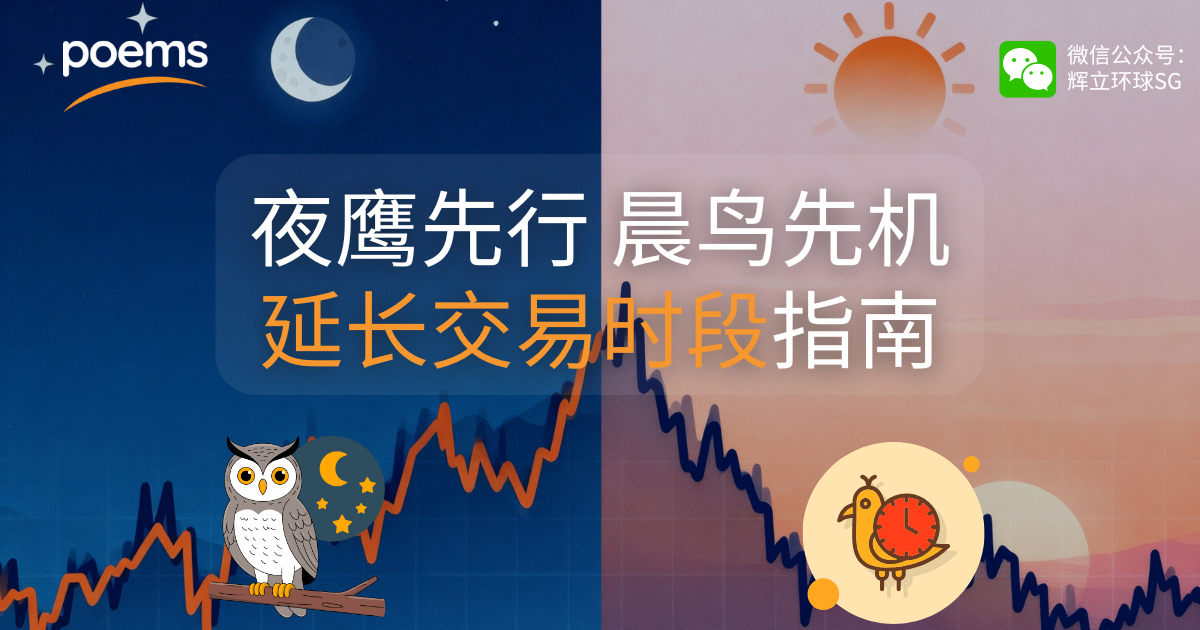赎回
赎回
在金融和商业领域,“赎回”一词具有多种含义,具体取决于情境。
赎回允许投资者在不卖出股票的情况下获取利润。当投资者赎回股票时,他们会按当前市场价格获得股票的价值,且费用和佣金较少。这样,投资者就可以在不卖出股票的情况下获取利润并缴纳相关税费。
什么是赎回?
赎回的概念在商业和金融中广泛应用。当金融工具在到期前被偿还时,就称为赎回。投资者可以通过将自己持有的全部或部分股份卖给公众来赎回股票。
在金融中,赎回是指在固定收入资产到期日或之前偿还该资产。最常见的固定收益投资是债券,此外还有定期存款、国库券和优先股。
赎回的类型
现金是最受欢迎的赎回形式。因此,当共同基金投资者寻求赎回时,基金管理公司会向投资者支付股票的市场价值支票。然而,在某些情况下,赎回也可能以实物形式进行。
赎回有两种类型:
- 自愿赎回
自愿赎回是指债券持有人选择在债券到期前赎回债券。
- 非自愿赎回
非自愿赎回是指发行人因无法继续支付所需款项而提前赎回债券。
赎回的详细说明
当债券持有人在债券到期前将其股份卖回给发行公司时,发行公司可能会支付债券的面值。大多数投资者在收取了投资的利息后出售其股份。赎回的成本通常高于证券的面值。
如果你有共同基金投资并希望赎回投资,必须通知你的基金经理。基金经理处理你的请求并在几天后将债券的本金支付给你
赎回如何运作?
当一家公司上市时,它将股票出售给投资者,形式为股票。股票可以在公开市场上交易,公司可以利用筹集的资金来资助其运营。随着时间的推移,股票的价值可能会根据公司的表现而上下波动。
如果公司的股价跌破某个水平,它可能会被从股票交易所除名。这对公司来说是一次重大打击,因为它将不再能够获得融资所需的资本。
然而,一家公司可以通过在公开市场上回购自己的股票来赎回。这可以帮助提升股价并为公司注入急需的现金。然而,赎回可能是困难的,并且有时可能不成功。
债券和其他固定收益资产为投资者提供定期的固定利息支付。债券可以在到期前或到期日赎回。如果投资者在到期时赎回债券,他们将收到债券的票面价值,也称为面值。这是债券发行人同意偿还给债券持有人的金额,代表了债券最初发行时的价值
赎回的示例
赎回有很多例子。例如,我们来看基金的赎回。持有人可以将基金赎回为现金、股票或其他资产。赎回价值通常是基金的净资产值减去任何费用或费用。例如,一个净资产值为10,000美元的基金,可能有一个9,500美元的赎回价值。
基金也可以由发行人赎回,通常是以股票形式进行。赎回价值通常是基金的净资产值减去任何费用或费用。例如,一个净资产值为10,000美元的基金,可能有一个9,500美元的赎回价值。
有时,基金可能会赎回为其他资产,如房地产或证券。赎回的价值通常是资产的公允市场价值减去任何费用或费用。例如,一个资产价值为10,000美元的基金,可能有一个9,500美元的赎回价值。
常见问题
在销售和促销领域,赎回是将优惠券、代币或其他促销方式兑换为商品或折扣,以赚取利润或获得其他形式的优惠。
商业术语中的赎回是指通过付款回收资产或获取有价值的东西。在某些情况下,企业可能会提供赎回选项作为促使顾客购买的激励。例如,一家商店可能会提供一个50美元的礼品卡,如果顾客在一定期限内在商店消费500美元。
赎回在股票市场中的一个好处是,它使投资者能够快速轻松地兑现投资。当投资者赎回股票时,他是将股票卖回给他购买时的公司或交易所。这一过程通常非常快速和简便,使得投资者在需要时能够迅速取回资金。
赎回的另一个好处是,它允许投资者避免手续费和佣金。当投资者赎回股票时,他不会像在公开市场上出售股票时那样受到同样的费用和佣金。这可以为投资者节省大量费用,特别是当他们赎回大量股票时。
赎回费用与基金的年度运营成本相关,因此与后端销售费用不同。此外,赎回费用通常只在短期内有效;大多数基金发行商会使用30天的时间框架。
股份赎回是指股东将其股份卖回公司。这通常发生在公司被收购或进行重大重组时。赎回价格通常会设定为相对于当前市场价格的溢价,以便股东从他们的投资中获利。
POEMS 提供的市场
阅读最新市场期刊

近年来,随着露营、登山、徒步等户外运动热度持续攀升,中国国内户外市场规模突破万亿。同时,除了始祖鸟(Arc'teryx)、Hoka、北面(The North Face)等知名国外品牌外,中国品牌也正以技术突破及场景创新重塑全球户外品牌市场。例如探路者(TOREAD)、骆驼(CAMEL)、凯乐石(KAILAS)等中国品牌,覆盖了从高端专业设备到性价比产品,满足了不同户外爱好者的需求。随着全民户外潮来临,其中又有哪些投资机会呢? 1.市场规模与增长趋势 中国户外运动产业在过去十余年实现高速发展,市场潜力巨大。Statista公开数据显示,至2025年全球户外运动用品消费者渗透率预计达20%,电商规模达2485亿美元(约3217.02亿新元)。目前中国户外运动渗透率仅28%,较海外超50%的水平仍有显著提升空间。 户外服饰行业的发展与国民经济水平、社会文化观念和体育产业政策紧密相连,大致可分为三 个阶段: 萌芽期(1990s - 2000s)国际品牌启蒙市场 上世纪90年代末,户外运动概念开始在中国一线城市的小众群体中传播。北面 The North Face、哥伦比亚Columbia等国际品牌以代理商模式进入中国,成为市场启蒙者。当时消费者多为专业玩家或高收入人群,市场规模较小,主要集中在少数专业户外用品店销售。 快速发展期(2008 - 2018)本土品牌崛起与市场扩张 北京奥运会的成功举办、居民收入的快速增长,与“十一黄金周”等长假制度的实行,极大地激发了全民运动的体育热情,为户外运动创造了条件。以探路者(TOREAD)、凯乐石(KAILAS)等为代表的本土品牌应运而生,以国际品牌为参考,再结合中国消费者的偏好和特点进行产品改良。同时还借助价格优势,在商场、专卖店等线下渠道迅速扩张,抢占中端市场。户外服饰的概念开始向大众休闲领域渗透,且市场规模实现年均两位数以上的高速增长。 转型升级期(2019年至今)市场竞争加剧,场景细分与时尚化融合 品牌竞争从单纯的产品和渠道竞争,转向科技含量、设计美学、品牌力、环保概念和社群运营的全方面竞争,始祖鸟等高端品牌从而爆发式增长。 (资料来源:嘉世咨询,《2025中国户外服饰市场分析报告》) (来源:灼识咨询,《2025得物户外运动白皮书》) 根据10月11日灼识咨询与上海市登山户外运动协会等机构联合发布的《2025得物户外运动白皮书》显示,截至2024年,中国户外运动参与率约为30%。80%户外用户为Z世代(1995至2010年间出生的一代人),且女性用户是不容小觑的消费力量,除了运动需求,女性更愿意将户外穿搭融入日常通勤中。户外运动产品年消费总金额主要集中在2000 - 5000元(约364.57 - 911.42新元),较低消费主要覆盖在参与率高的大众运动,例如徒步和骑行。 2.增长驱动因素 政策体系不断完善 2024年10月以来,在国家政策的推动下,10余个省区市相继出台户外运动产业规划;冰雪运动、户外装备、营地建设等领域的产业标准也在不断健全中。 运动场地设施建设全民推进,户外运动产品供给丰富多元 截至2025年上半年,冰雪场地达2678个,健身步道17.18万个,飞行营地超200家,自驾营地857个,帆船与游艇码头108个。与此同时,赛事与消费活跃,2024年路跑赛事749场、参赛超700万人次,假期户外精品路线丰富多样,滑雪及越野装备销量普遍增长超80%,户外运动产品供给愈发多元。 顶级体育赛事的催化 2025年哈尔滨亚冬会、F1中国大奖赛重返上海、崇礼168超级越野赛等,不仅提升了运动热度,更带动了产品装备制造、文旅消费等相关产业链的融合发展。 健康理念的全面升级 近年来,当代消费者们更重视“积极的生活方式”以及“保持良好的心理健康”,这种健康理念的进化直接影响了运动的动机,人们不再为了锻炼身体而运动,而是更希望从运动中获得充沛活力、积极心态和社交满足。 (资料来源:中国国家体育总局经济司,《中国户外运动产业发展报告(2024-2025)》) 3.当前竞争格局 根据艾媒咨询与新快数据研究中心等机构9月联合发表的《户外运动:“玩”出来万亿级产业》专题显示,预计到2025年,中国户外运动产业规模将超3万亿元(约5472.88亿新元),户外用品市场突破6000亿元(约1094.58亿新元)。同时,加上目前的户外运动渗透率仍处于低位,将带来巨大的增长潜力。 然而,本土与国际品牌、线上与线下渠道和不同产品种类之间的竞争都将更加激烈。整体而言,国内品牌正加速上探中高端市场,通过技术创新与品牌升级缩小与国际品牌的差距;而国际品牌则强化专业化与高端定位,以维持品牌壁垒。未来竞争格局将向“高端国际品牌+本土专业品牌并存”的双极化方向发展。 3.1 国内外品牌混合竞争 (来源:艾媒咨询,《户外运动:“玩”出来万亿级产业》) 上图显示,从层级结构和销售额排名来看,虽然本土品牌在大众市场份额领先,但国际品牌在高端市场中仍居强势地位。顶层(专业极限领域)由国际高端品牌主导,如始祖鸟(Arc'teryx)、萨洛蒙(Salomon)等,以专业性能和品牌溢价取胜,主要面向高端玩家;中层(核心主流市场)为竞争最激烈的领域,国内品牌如北面(The North Face)、安踏(2020.HK)、李宁(2331.HK)专业线及牧高笛(MobiGarden)等在此角逐,强调功能性与时尚融合;底层(大众入门市场)由本土品牌骑驰、迪卡侬等主导,凭借高性价比与广泛渠道快速扩张。 3.2 本土品牌正快速崛起 虽然目前国际品牌占据了高端市场,但中国品牌正以技术创新、市场影响力与口碑重塑全球户外格局,展现从“中国制造”到“全球品牌”的跨越。根据《2025全球户外产业蓝皮书》及行业权威数总结,中国户外品牌呈现以下发展特点: 技术自主化 —— 凯乐石(KAILAS)作为全球三大全系攀登品牌之一,实现防水膜100%自主研发,且Mont系列冲锋衣获国际攀岩赛事认证;而探路者(TOREAD)作为中国南北极科考队独家装备供应商,其极地防护技术累计护航12次极地任务。 场景多元化 —— 牧高笛(MobiGarden)、小绿洲(Oasis)等品牌推动从专业户外向“露营+研学”、“露营+婚礼”等场景融合。小绿洲首创的装备共享平台小程序,更将租凭设备统一设计为薄荷绿色系,在全国30个营地形成视觉标识。年租凭订单量超50万单,使其成为小红书“露营美学”热门打卡点。 全球本土化 —— 中国户外品牌在国际高端市场竞争力显著提升:凯乐石(KAILAS)成为国际攀联唯一指定装备供应商;探路者(TOREAD)极地防护技术纳入行业标准等。全球高端户外市场中,中国品牌占有率已由8%提升至15%,且预计2030年将突破25%。 4. 风险与挑战 渗透率有待提高,消费者忠诚度不高 上文提到,与发达国家相比,目前中国户外市场仍处于低位,增长天花板仍未到来。加上国内品牌历史短,品牌文化缺失,消费者忠诚度培养是一个长期课题。 原材料、生产成本、品牌和渠道推广成本等可能上涨 随着消费者对环保、产品性能等要求越来越高,品牌需加速材料替代、技术研发。而行业内,高端功能面料、技术等仍有部分依赖进口,若汇率、国际贸易政策或运输发生波动,毛利率会承压。所以本土品牌也需要加速本土化研发、多元化供应链等以缓冲波动风险。 根据Statista公开数据显示,中国线上主流电商平台户外消费市场规模在2024年达1053.3亿元(约193.63亿新元),同比增长了25%,且预计将逐年提升。目前淘宝、得物、京东(9618.HK)等电商平台是主要销售渠道,能带动消费升级与品牌扩展,但同时,其快速变化的特点也带来了库存管理难度与折扣压力。品牌需要建设自有流量池、提升供应链柔性(例如快速补货、少量多样生产等),以降低库存风险。 海外扩张的不确定性 随着本土品牌在海外快速扩张,迅速提升其海外份额的同时,也需面临文化、贸易、政策等挑战。品牌需要制定差异化战略,以提升品牌影响力和市场份额。 5. 相关股票 1.安踏体育用品有限公司(2020.HK) (来源:安踏体育《2025年中期报告》) 根据安踏发布的《2025年中期报告》,截至6月30日,收入(Revenue)同比增长14.3%至385.4亿元(约70.31亿新元)。受电商业务与鞋类产品占比提升影响,整体毛利率(Gross Profit Margin)小幅下降0.7个百分点至63.4%。但凭借成本控制及运营效率优化,经营溢利率提升至26.3%,展现稳健盈利能力。按综合基准并剔除Amer Sports上市所致的权益稀释收益,股东应占溢利(Profit Attributable to Sharesholders)同比增长14.5%至70.3亿元(约12.82亿新元),整体经营表现持续向好。 (来源:安踏体育《2025年中期报告》) 上半年中国国内消费持续复苏,体育用品行业稳步增长,安踏在国内社会消费品零售大盘中表现出色。安踏坚持“单聚焦、多品牌、全球化”战略,通过多品牌满足不同消费圈层与场景需求,并加速拓展东南亚、中东、北非、欧美等海外市场。 安踏与FILA两大核心品牌在300亿元(约54.97亿新元)以上收入的规模基础上,继续保持超于行业平均水平的韧性增长。得益于在细分赛道上的精准差异化布局,DESCENTE(高质感专业运动品牌)、KOLON SPORT(户外运动品牌,聚焦露营和徒步)、MAIA ACTIVE(瑜伽品牌)等表现强劲。 自2009年起,通过并购与重塑打造差异化品牌矩阵,形成安踏体育与Amer Sports双上市驱动格局。以“品牌+零售”模式及DTC(直营)转型提升效率和体验,加上多品牌管理能力、多品牌零售能力与全球资源整合成为三大核心竞争力。 为深化其差异化战略,今年上半年安踏完成收购JACK WOLFSKIN,并将制定三至五年的复兴计划重塑产品与品牌体系;同时,安踏也将投资MUSINSA中国,持股40%,以更好地贴近年轻消费趋势,探索大时尚与体育产业的融合边界。 虽然今年双十一期间线上销售受控制零售折扣影响而表现疲软,但多品牌矩阵协同效应显现,尤其是户外品牌组合增长强劲,加上Amer Sports的盈利贡献,预计安踏今年仍可达全年销售指引。 2.亚玛芬体育 Amer Sports (AS.US) 亚玛芬旗下拥有始祖鸟(Arc'teryx)、萨洛蒙(Salomon)、威尔胜(Wilson)等多个高端品牌,在2019年被安踏(2020.HK)、腾讯(0700.HK)等组成的财团收购,并在2024年2月2日正式登陆纽交所。 根据招股书显示,亚玛芬在过去2020-2022年面临人工开销大、不同品牌不同国家市场运营的挑战,使其成本不断加大,虽然毛利率每年提升,但并未摆脱亏损状态,三年累计亏损6.16亿美元(约8.04亿新元)。 这次上市让亚玛芬成为2024开年以来全球规模最大的IPO,也让安踏拥有了第二家在国际资本市场挂牌交易的上市公司。而在收购的5年后,亚玛芬首次扭亏为盈。根据2月25日公布的第四季度及全年财报显示,截至2024年12月31日,亚玛芬全年营收51.83亿美元(约67.52亿新元),增长了18%。按地区划分,大中华区以53.7%的增长领先,且自上市以来,已连续3个季度超过50%的增长。 (来源:《Amer Sports Third Quarter 2025》) 根据11月18日最新公布的第三季度财报,2025年第三季度营收为17.56亿美元(约22.87亿新元),同比增长30%,高于市场预期的17.2亿美元(约22.40亿新元),且其强劲增长势头将延续至第四季度。以业务板块划分,得益于萨洛蒙(Salomon)的强劲表现,户外运动装备业务的销售额增长了36%;而始祖鸟(Arc'teryx)则带动了技术服装业务的销售额增长了31%。 (来源:《Amer Sports Third Quarter 2025》) 虽然2025年大中华地区的营收与2024年相比稍显逊色,但第三季度四大区域均实现加速增长,并录得两位数的收入增幅。通过差异化策略,大中华地区将会在三大核心品牌(始祖鸟(Arc'teryx)、萨洛蒙(Salomon)、威尔胜(Wilson))上持续实现行业领先的卓越表现。 虽然今年9月始祖鸟(Arc'teryx)在喜马拉雅山脉的烟花秀事件引起了短期的波动,但受影响较预期小,加上刚出炉的第三季度业绩表现及第四季度动能持续强劲,亚玛芬管理层上调了2025年财年指引。 3. 李宁有限公司(2331.HK) 长期以来,安踏与李宁抢占中国体育品牌大部分市场份额,但这两家企业选择了不同的发展路径。安踏通过构建、收购多品牌矩阵实现扩张,而李宁则坚持“单品牌、多品类、多渠道”策略,加大其营销和研发投入,以强化品牌形象和产品科技创新升级。 ((来源:李宁《2025年中期报告》) 根据中期报告显示,截至2025年6月30日止六个月,李宁稳固运营基础、积极积蓄发展动能,实现营收同比增长3.3%至148.17亿元(约27.17亿新元)。 (来源:李宁《2025年中期报告》) 在激烈的市场竞争中,运动品牌加速求新求变,而产品创新与渠道升级为品牌争夺市场份额的主要方向。李宁、361°、安踏等国产品牌在价格带与产品层面竞争接近,渠道拓展成为突围关键。从中期财报来看,与安踏的34.8%(来源:安踏体育《2025年中期报告》)相比,传统线下渠道仍为李宁营收的主力军,电子商务渠道销售的占比仅为29%。 值得一提的是,在10月举行的2025中国户外运动产业大会上,李宁”夺回“奥运战袍,与中国奥委会联合发布2026年米兰冬奥会中国体育代表团领奖装备。从1992年李宁首次赞助,到2009年安踏接棒合作16年,再到2025年回归再次成为合作伙伴,意味着两家户外运动品牌重新开始在”国家队“层面上的较量。 随着相关奥运新产品的推出,预计下半年广告及推广开支比率将上升,并控制其非广告开支,以管理利润压力。所以预计短期内增长动力有限,股价或因下半年销售表现疲弱而出现横行。但随着营销渠道的拓展及新产品的推广,将有助于李宁巩固市场份额。 股市表现 股票 安踏(2020.HK) 亚玛芬(AS.US) 李宁(2331.HK) 年初至今回报率 (YTD Return,截至2025年11月24日) +9.39% +28.93% +14.43% 预期/滚动市盈率 (Forward/ Trailing P/E) 预期:14.35 预期:28.74 预期:13.95 市值 (Market Cap,截至2025年11月21日) 227.66B HKD 18.89B USD 44.86B HKD 最新成交价 (截至2025年11月24日) 83.6HKD 34.06USD 17.71HKD 1年目标价 (1yr Target Estimate) 114.24HKD 46.27USD 21.41HKD 来源:Yahoo Finance,2025年11月25日 了解更多全球市场投资信息 辉立货币市场基金(PMMF) 货币市场基金是一种开放式共同基金,投资于短期(少于 1 年)、低风险的债务证券,以获得流动性。这是一种低风险的现金投资方式。 辉立货币市场基金(PMMF)旨在保全本金价值并保持高度流动性,同时获得与新币储蓄存款相当的回报。该基金将主要投资于短期、高质量的货币市场工具和债务证券。此类投资可能包括政府和公司债券、商业票据和金融机构存款。 如何投资于辉立货币市场基金? 你可以通过 “余额增值服务”(SMART Park)投资辉立货币市场基金。交易账户中的最低余额若超过100 美元,则该资金将自动投资于辉立货币市场基金。 使用SMART Park 获取超额收益,让你的钱生钱! 无锁定期 真实回报, 并非预期回报 最大的^零售货币市场新元基金之一 值得信赖的金融机构 点击了解SMART Park 在辉立开设账户,轻松交易全球市场。 我要开户 参考链接: https://www.sport.gov.cn/n20001280/n20745751/c29145043/content.html https://zhuanlan.zhihu.com/p/1961395056419266648 https://www.jfdaily.com/staticsg/res/html/web/newsDetail.html?id=997524 https://www.xkb.com.cn/articleDetail/438887 https://finance.sina.com.cn/roll/2025-07-02/doc-infeawwa5584844.shtml https://s203.q4cdn.com/960646696/files/doc_financials/2025/q3/3Q25-AS-Slides_Final.pdf https://manager.wisdomir.com/files/394/2025/0908/20250908164501_24515132_tc.pdf https://doc.irasia.com/listco/hk/lining/interim/ir323807-ew_02331ir_20250911.pdf 免责声明 这些评论旨在供一般传播使用,并未考虑任何接收该文件的个人的具体投资目标、财务状况和特别需求。因此,对任何因基于此信息而采取行动的个人所造成的任何直接或间接损失,均不作任何保证和不承担任何责任。评论中表达的观点可随时更改,恕不另行通知。投资涉及投资风险,包括可能损失所投资的本金金额。单位的价值及其收入可能会上升也可能会下降。过去的业绩数据以及这些评论中使用的任何预测或预期并不一定能指示未来或可能的表现。Phillip Securities Pte Ltd(PSPL)、其董事、关联人士或员工可能不时对评论中提到的金融工具持有利益。投资者在投资前可能希望咨询财务顾问。如果投资者选择不寻求财务顾问的建议,他们应考虑该投资是否适合自己。 这些评论中包含的信息来源于公共来源,PSPL对此信息的可靠性没有理由怀疑,评论中包含的任何分析、预测、预期和意见(统称为“研究”)均基于此类信息,并仅为信念的表达。PSPL并未验证该信息,且对该信息或研究的准确性、完整性或应被依赖性不作任何明示或暗示的声明或保证。评论中包含的任何此类信息或研究均可能会发生变化,PSPL不承担任何责任以维护所提供的信息或研究,或提供与此相关的任何更正、更新或发布。在任何情况下,PSPL均不对因使用所提供的信息或研究而可能产生的任何特殊、间接、附带或后果性损害承担责任,即使其已被告知可能存在此类损害。评论中提到的公司及其员工对任何因各种原因导致的错误、不准确和/或遗漏不承担责任。此处的任何意见或建议均为一般性意见,且可随时更改,恕不另行通知。评论中提供的信息可能包含有关国家、市场或公司的未来事件或未来财务表现的乐观声明。您必须自行评估所提供信息的相关性、准确性和充分性。 这些评论中描述的观点和任何策略可能不适合所有投资者。此处表达的意见可能与PSPL或其关联人士和合作伙伴表达的意见不同。评论中对投资产品或商品的任何提及或讨论纯粹是为了举例说明,不应被解读为推荐、要约或对提到的投资产品或商品的认购、购买或销售的邀请。

中国生物医药产业历经十年跨越发展,在后疫情时代的全球经济放缓与资本市场回调的多重压力下,正经历显著挑战。尤为关键的是,自2015年起,一系列政策与市场驱动下,中国制药业已完成从“仿制药驱动”到“创新药引领”的根本性转型。创新药的强势崛起不仅深刻重塑了国内医药生态,更成为支撑中国医药产业全球化战略的核心动力。本文旨在解释与区分创新药相关概念,并带领投资者了解创新药产业链以及其政策的相关变化,基于现有的数据阐述创新药行业发展的逻辑,以便让投资者们管中窥豹。 1. 什么是创新药? 创新药(Innovative Drugs),又称原研药,是指基于新的作用机理自主研发,并拥有独立知识产权的药物。它们必须经历完整、长达十余年的临床试验,以充分证明其安全性和有效性后方能首次获批上市。广义上,创新药涵盖中药、生物药和化学药,但通常特指化学创新药和生物创新药。根据创新程度,主要分为“First-in-class”(首创)和“Me-too/better”(同类或改良型新药);按分子类型,则可分为小分子药、大分子药、细胞治疗和基因治疗药物等。 创新药和仿制药的根本区别在于前者拥有专利保护。创新药通过一系列完善的策略,包括特定的申报流程、对市场终端的有效控制以及强大的专利网络,能够成功阻止竞争对手进入。这种方法论使其在特定药物分子或整个治疗领域内形成垄断竞争格局,从而掌握定价权并获得较高的市场渗透率。 2. 创新药的研发流程 创新药研发是一个耗时漫长(通常超十年)的复杂系统工程。流程始于药物发现和靶点确认,随后进入临床前研究,通过体外及动物实验评估有效性、毒理学和安全性。紧接着是分阶段的临床试验,所有数据通过监管机构审核后,方可提交上市申请。药物获批上市后,还需持续进行临床后研究和市场监控,以确保长期安全性与有效性。 3. 创新药强势转型的宏观逻辑 3.1 人口老龄化的担忧以及病谱的转变 (资料来源:2025年《中国银发经济研究报告》) 中国人口老龄化趋势明显,2024年,中国60岁以上老人数量达到3.1亿,占比高达22.0%,未来老龄人口比例还将继续增加。而随着老龄化趋势的加深,如心血管疾病、糖尿病、恶性肿瘤、白内障、帕金森症和阿尔茨海默症等慢性病和退行性疾病的发病率将会显著增加,为医疗产业带来更大的市场机会。而内分泌和代谢性疾病、肿瘤、心脑血管疾病和神经系统疾病通常病程长、治疗复杂,对药物疗效和安全性要求更高,传统仿制药难以满足临床需求,推动创新药成为改善预后和提高生活质量的核心手段。 3.2 监管改革与财政鼓励的双动力 企业的发展都离不开政策的大力推动,在监管政策的改革与财政政策的双重激励下,创新药得到了较为优质的发展土壤。2024年,国家和地方政府密集出台创新药支持政策,从研发、临床、上市到应用,形成全链条、系统化推进的格局。这些政策的持续加码,有望推动创新药行业进入实质性增长阶段,具备核心创新能力的企业及相关产业链公司有望迎来加速发展。 (数据来源:德勤,《2025中国促进生物医药产业发展新政及其影响》) 在全链条支持创新的大框架下,地方性政策也推出了相应的措施以提供资金的支持以改善商业环境。 (数据来源:德勤,《2025中国促进生物医药产业发展新政及其影响》) 4. 创新药企的发展趋势 (来源: 《2025年医药魔方蓝皮书报告》) 随着过去十年生物医药产业的大力发展,中国本土医药企业的研发实力逐步增强,企业不断加大研发的投入比例,扩大研发管线的深度与广度,从而加快研发进程。 2024年,中国已获批163款新药(创新药+微创新+类似药),总数量上再创新高,其中国产新药获批88款,占比54%。2015 年仅占全球创新药首发 4% 的份额,到2024 年接近 38%。更有罗沙司他、可伐利单抗、佩索利单抗皮下注射剂等全球同步研发产品首先在中国获批。 (来源:医药魔方NextPharma数据库,2015-2024年全球首次获批上市的创新药数量及注册国家/地区分布) 得益于中国医药企业持续的研发投入,管线的深度和广度不断扩展,中国药品技术授权(license-out)及在海外成立New-co势头迅猛,创新逐渐转变为支撑中国生物医药产业发展的新动能。中国本土药企的研发能力也逐步被重磅商务拓展(Business Development,简称BD)落地所验证,首付款屡创新高。美国成为中国BD出海最活跃的市场之一。如三生制药与辉瑞PD1/VEGF双抗于5月20日达成协议,三生制药将获得辉瑞高达12.5亿美金的不可退还且不可抵扣的首付款,创下中国国内首付款最高的药品技术授权(License-out)记录。 5. 发展前景与阻碍 美国总统特朗普此前宣布在10月1日起对进口品牌药品或专利药品征收100%的关税,旨在令药品制造业回流,从而提振美国本土经济,无疑对药品出口国造成不小的挑战,政策明确提出对正在美国建设制药厂的企业基于关税豁免,而依赖传统药品出口至美国的外商药企则站在关税的十字路口,无论是大额投入资金在美国开展制造产业链,或是传递部分价格效应至消费者,都会对公司的利润造成负面的影响,甚至因此失去产品在市场的竞争力。 而对于中国的创新药企,由于公司的经营模式和策略的不同,把重点放在药品技术授权(license-out)的企业可能会收到较小的影响,因为药品技术授权的核心标的是知识产权和临床数据,关税对于其影响有限,而关税的长期影响相信会体现在创新药企“出海”模式的转变。不过关税政策背后体现的是地缘政治的极端不确定性,此举可能会增加美国本土药企对于海外药企合作的风险估值,进而转向本土研发或压低授权交易的估值,以减少未来的不确定性。 6. 相关股票 三生制药(1530.HK) 盈利分析 公司业绩保持快速增长。2024年,三生制药实现营业收入91.1亿元(约16.55亿新元),同比增长16.5%;经调整的经营性归母净利润为23.2亿元,同比增长18.8%。其中,生物制药和毛发健康等业务板块均实现较快增长。 在费用方面,公司2024年研发投入13.27亿元(约2.41亿新元),同比大增66.9%。其研发费用也显著上升:升至14.6%。其中4.4个百分点的研发费用上升,主要源于公司加大内部管线开发及外部合作投入。 (资料来源:2020至2024公司公告) 与辉瑞在今年5月达成协定的707药物,在肺癌,结直肠癌等适应症中展开四项临床研究,数据显示称药物展现出良好潜力。 企业估值 大部分创新药企在高速成长期、尚未完全盈利或盈利波动大时,本文使用市销率(Price to Sales Ratio, P/S)作为辅助指标进行估值分析。与其他创新药企相比,三生制药市销率估值低于其余可比行业市销率平均值(15.5),但仍有上涨的空间。其次,在市销率相对增长率的比值分析中,三生制药(0.6)则被认为是在现阶段被低估的创新药企之一,仍具备投资机会。 (资料来源:Alpha Spread 股票分析,截至2025年10月9日) 优势 核心产品收入贡献稳健 三生药业2025年中期业绩公告公布,特比澳的销售额下降至23.71亿元(约4.31亿新元),同比减少约4.2%,主要原因是销量下滑。与此同时,益比奥和赛博尔的销售额分别降至3.46亿元(约0.63亿新元)和1.1亿元(约0.2亿新元),降幅分别为12.1%和10.4%。相比之下,脱发治疗领域表现亮眼,销售额增长至6.9亿元(约1.25亿新元),同比增长23.8%,这得益于有效的市场推广策略。此外,CDMO业务收入显著提升至1.01亿元(约0.18亿新元),增幅高达76.1%。 PD-1/VEGF双抗SSGJ-707迈入III期临床 BD合作展现MNC认可 三生制药在今年5月宣布与辉瑞达成战略合作,将其自主研发的PD-1/VEGF双特异性抗体SSGJ-707的全球权益授予辉瑞。此次交易总价值高达15亿美元(约19.43亿新元),包括辉瑞已认购1亿美元(约1.30亿新元)三生普通股、潜在超过48亿美元(约62.18亿新元)的里程碑付款,以及梯度双位数的销售分成。 辉瑞将主导SSGJ-707在美国及全球范围内针对非小细胞肺癌(NSCLC)及其他瘤种的III期临床试验。三生制药则保留全球供货权,并成为中国内地的首选生产商,同时也是中美以外市场的供应方之一。 潜在风险 SSGJ-707目前处于全球III期临床阶段,尽管II期数据表现优异,但III期试验仍存在失败可能,尤其是与默沙东的Keytruda进行头对头比较,若疗效或安全性不达预期,将直接影响后续商业化 PD-1/VEGF双抗赛道竞争激烈。康方生物(9926.HK)的AK112已获批上市,其他企业如荣昌(9995.HK,688331.SH)、君实(1877.HK,688180.SH)、华海(600521.SH)也在推进同类产品。 若SSGJ-707在疗效、适应症拓展或联合疗法方面不具备明显优势,市场份额可能受限美国《通胀削减法案》(IRA)及“最惠国定价(MFN)政策可能压缩药品利润空间,影响辉瑞在全球市场的定价策略和回报预期,从而影响三生的销售分成三生获得的15亿美元(约19.43亿美元)交易付款中包含1亿美元(约1.3亿新元)股权投资和高达48亿美元(约62.18亿新元)的里程碑付款,这些后续收入高度依赖辉瑞的开发进度和市场表现,存在兑现不确定性。 百济神州(688235.SH/ BGNE.NASDAQ/ 6160.HK) 盈利分析 百济神州2025年半年度报告显示,公司业绩实现里程碑式突破,营业总收入达 175.18 亿元(约31.84亿新元),同比强劲增长46.03%,并首次实现净利润扭亏为盈,达 4.5 亿元(约0.82亿新元)。 业绩增长主要由产品收入驱动(173.6 亿元(约31.56亿新元),同比增长 45.8%)。核心产品百悦泽(泽布替尼)表现亮眼,以全球销售额 125.27 亿元(约22.77亿新元,同比增长 56.2%)稳居全球 BTK 抑制剂市场首位,其中美国市场销售额达 89.58 亿元(约16.28亿新元,同比增长 51.7%),成为美国市场份额最大、增长最快的品牌。另一核心产品百泽安(替雷利珠单抗 PD-1抑制剂)销售额达 26.43 亿元(约4.80亿新元,同比增长 20.6%),其增长得益于中国新适应症纳入医保以及全球化加速,该产品已在全球 47 个市场获批并持续纳入报销范围。 企业估值 截止至10月9日,百济神州的市销率估值(7.9)显著低于其余可比行业市销率平均值(15.5),估值差异表明,市场尚未完全反映其核心产品(泽布替尼)的全球领先地位和强劲的营收增长势头。鉴于百济神州产品线的爆发式增长及盈利能力的改善,其 P/S 存在明显的价值修复和向上空间。 (资料来源:Alpha Spread 股票分析,截至2025年10月9日) 优势 核心产品凭借优秀临床数据抢占市场份额 代表产品如百悦泽(泽布替尼)已成为投资价值的基石。该产品凭借“同类最佳”(Best-in-Class)的临床数据,迅速抢占了美国 BTK 抑制剂市场,目前已稳居美国和全球 BTK 抑制剂市场份额首位。2025 年上半年,泽布替尼全球销售额达 125.27 亿元(约22.77亿新元),其中 73% 的收入来自美国市场,证明了其在最顶尖市场的商业化能力。 除了泽布替尼, 百泽安2024年获FDA批准打入美国市场,公司建立了横跨多个国家的全球研发、临床、生产和商业化网络,能够高效完成大规模、全球多区域临床试验,构筑了高壁垒的战略竞争优势。 持续的搞研发投入与扭亏为盈的转折点 2025年半年度公司业绩实现里程碑式突破,营业总收入达 175.18 亿元(约31.84亿新元),同比强劲增长 46.03%,并首次实现净利润扭亏为盈,达 4.5 亿元(约0.82亿新元)。百济神州2024年营业收入为272.14亿元(约49.47亿新元),同比增长56.2%。 这主要得益于其核心产品如百悦泽(泽布替尼胶囊)和百泽安(替雷利珠单抗)的销售增长。其次,公司保持高额的研发投入(2024年研发投入 141 亿元(约25.63亿新元),位居行业前列),确保了其超过 60 款在研产品的丰富管线,为后续的增长提供了持续的创新动力。 潜在风险 产品集中风险过高 尽管目前研发管线众多多,当前营收仍高度依赖百悦泽的表现;若竞争药物或安全/疗效数据不及预期,短期业绩可能受到较大冲击。其次是在BTK及PD-1抑制剂的领域竞争者众多,长期存在产品价格压力,对公司应收有一定潜在影响。 结语 在全球医药产业深刻变革下,中国药企正加速完成从“仿制”到“创新”的跃迁,政策、资本与技术的共振推动创新药成为行业核心引擎。港股中,百济神州与三生制药是其中代表:前者凭借BTK抑制剂百悦泽与PD-1抑制剂百泽安实现中美欧三地商业化,展现全球化研发与执行力;后者依托生物制剂优势及与辉瑞等国际合作,加速国际化布局。随着老龄化与监管完善以及国家政策的扶持,中国创新药正从“量变”迈向“质变”。 了解更多全球市场投资信息 辉立货币市场基金(PMMF) 货币市场基金是一种开放式共同基金,投资于短期(少于 1 年)、低风险的债务证券,以获得流动性。这是一种低风险的现金投资方式。 辉立货币市场基金(PMMF)旨在保全本金价值并保持高度流动性,同时获得与新币储蓄存款相当的回报。该基金将主要投资于短期、高质量的货币市场工具和债务证券。此类投资可能包括政府和公司债券、商业票据和金融机构存款。 如何投资于辉立货币市场基金? 你可以通过 “余额增值服务”(SMART Park)投资辉立货币市场基金。交易账户中的最低余额若超过100 美元,则该资金将自动投资于辉立货币市场基金。 使用SMART Park 获取超额收益,让你的钱生钱! 无锁定期 真实回报, 并非预期回报 最大的^零售货币市场新元基金之一 值得信赖的金融机构 点击了解SMART Park 在辉立开设账户,轻松交易全球市场。 我要开户 免责声明 这些评论旨在供一般传播使用,并未考虑任何接收该文件的个人的具体投资目标、财务状况和特别需求。因此,对任何因基于此信息而采取行动的个人所造成的任何直接或间接损失,均不作任何保证和不承担任何责任。评论中表达的观点可随时更改,恕不另行通知。投资涉及投资风险,包括可能损失所投资的本金金额。单位的价值及其收入可能会上升也可能会下降。过去的业绩数据以及这些评论中使用的任何预测或预期并不一定能指示未来或可能的表现。Phillip Securities Pte Ltd(PSPL)、其董事、关联人士或员工可能不时对评论中提到的金融工具持有利益。投资者在投资前可能希望咨询财务顾问。如果投资者选择不寻求财务顾问的建议,他们应考虑该投资是否适合自己。 这些评论中包含的信息来源于公共来源,PSPL对此信息的可靠性没有理由怀疑,评论中包含的任何分析、预测、预期和意见(统称为“研究”)均基于此类信息,并仅为信念的表达。PSPL并未验证该信息,且对该信息或研究的准确性、完整性或应被依赖性不作任何明示或暗示的声明或保证。评论中包含的任何此类信息或研究均可能会发生变化,PSPL不承担任何责任以维护所提供的信息或研究,或提供与此相关的任何更正、更新或发布。在任何情况下,PSPL均不对因使用所提供的信息或研究而可能产生的任何特殊、间接、附带或后果性损害承担责任,即使其已被告知可能存在此类损害。评论中提到的公司及其员工对任何因各种原因导致的错误、不准确和/或遗漏不承担责任。此处的任何意见或建议均为一般性意见,且可随时更改,恕不另行通知。评论中提供的信息可能包含有关国家、市场或公司的未来事件或未来财务表现的乐观声明。您必须自行评估所提供信息的相关性、准确性和充分性。 这些评论中描述的观点和任何策略可能不适合所有投资者。此处表达的意见可能与PSPL或其关联人士和合作伙伴表达的意见不同。评论中对投资产品或商品的任何提及或讨论纯粹是为了举例说明,不应被解读为推荐、要约或对提到的投资产品或商品的认购、购买或销售的邀请。

引言 在当今瞬息万变的经济环境中,市场波动加剧,投资者往往错失获利良机。事实上,即便是选择较为稳健的股票,也可能需要长时间才能看到回报;而节奏更快的短期期权交易又潜藏着较高风险。此时,期权轮盘策略(The Wheel Strategy)便应运而生——这是一种以耐心为核心、结构化的投资方法,能在市场波动中持续创造稳定收益,同时避免追逐短线暴涨所带来的压力。 什么是期权轮盘策略? 期权轮盘策略(The Wheel Strategy)结合了两种常见的期权操作方式:现金担保看跌期权(cash-secured put)与备兑看涨期权(covered call),并以循环的方式持续运作。具体流程如下: 卖出备兑现金认沽期权:在等待以理想价格买入股票的同时,先收取权利金作为收益 若认沽期权被执行,你将以预设价格买入该股票。此时转为卖出备兑认购期权,在持有股票期间继续收取额外的权利金 若股票被行使卖出(即被“call走”),则重新回到第一步,继续重复这一循环 这种策略常被形容为“稳中求进”——不追求高风险的暴利,而是通过持续收取期权权利金实现稳定现金流。 因此,它特别适合希望: 获得持续的被动收入 降低交易压力 并采用纪律性强、规则化操作的投资者。 你可以把它视为一种让市场为你工作的耐心策略——随着时间推移,在市场波动中稳步前行,既能积累股票部位,也能灵活锁定获利,实现成长与收益的双赢。若想进一步了解“备兑现金认沽”与“备兑认购”的原理,可参考我们过往的市场期刊,我们已对这两种策略进行了深入讲解。 为何耐心至关重要 期权轮盘策略的每一个循环都需要一定时间来完成。换句话说,你是在让资金或持股“帮你收租”。通过持续收取期权权利金,投资者能够建立起一条稳定的现金流,同时根据当下市场状况灵活调整策略,从而在长期中获得稳健回报。这种策略在应用于价格波动较小、流动性高、基本面稳健的个股时效果最佳,因为此类标的价格剧烈下跌的风险较低,权利金收入也更具可预测性。 风险提示 1. 标的股票风险 当标的股票价格下跌时,投资者将面临潜在亏损风险,其下行风险与直接持有股票相同。在最极端的情况下,若股价归零,投资者可能面临全部本金损失。不过,这一风险可通过选择稳健且基本面良好的公司来降低。特别是蓝筹股,由于股价波动较小,相对能减少价格急跌带来的风险。 2. 机会成本 期权轮盘策略也存在机会成本。当股价大幅上涨、超过执行价时,投资者的利润将受到限制。对于备兑现金认沽与备兑认购而言,最大收益分别为所收取的期权权利金,以及(在备兑认购情形下)从买入价至执行价之间的股价升值。这与单纯的“买入并持有”策略不同——若股价持续上涨,后者的潜在收益理论上是无限的。也就是说,虽然期权轮盘策略能带来稳定的收入与一定的下行保护,但代价是牺牲了无限的上涨空间。 关于收益上限的说明 在备兑现金认沽与备兑认购策略中,投资者的最大收益是有限的——前者的利润来自所收取的期权权利金,后者则是权利金加上股价上涨至执行价之间的差额。这与单纯“买入并持有”股票的策略不同——若股价持续上涨,后者的潜在收益理论上是无限的。 换句话说,虽然期权策略能提供稳定的收入来源与一定的下行保护,但其代价是放弃了长期无限的上涨潜力。 谁适合采用期权轮盘策略? 正如其名,期权轮盘策略是一场关于耐心的游戏。在执行过程中,投资者最终往往会持有标的股票——可能是在期权到期时,也可能更早(若买方提前行权)。因此,这一策略尤其适合那些愿意长期持股、并能接受被指派风险的投资者。期权轮盘策略的目标是创造稳定现金流,同时有助于降低股票的平均持仓成本。 在宏观经济不确定性增强、市场方向难以预测的时期,这种策略提供了一种有纪律的操作框架:它让投资者既能留在市场中、持续收取权利金,又有机会以更理想的价格买入优质股票,并在可控风险下稳步增值。 结语 期权轮盘策略提醒我们:耐心终会带来回报。与其追逐瞬息万变的交易机会或寄望于暴涨暴富,不如通过持续收取小额权利金,在时间的积累中稳步获益。这并非要你精准掌握市场节奏或预测每一次波动,而是要以纪律执行策略,安心持有优质资产,让时间成为你的盟友。 立即与 POEMS 一起聪明投资——马上开户,畅享美股交易! 了解更多全球市场投资信息 在辉立开设账户,轻松交易全球市场。 我要开户 辉立货币市场基金(PMMF) 货币市场基金是一种开放式共同基金,投资于短期(少于 1 年)、低风险的债务证券,以获得流动性。这是一种低风险的现金投资方式。 辉立货币市场基金(PMMF)旨在保全本金价值并保持高度流动性,同时获得与新币储蓄存款相当的回报。该基金将主要投资于短期、高质量的货币市场工具和债务证券。此类投资可能包括政府和公司债券、商业票据和金融机构存款。 如何投资于辉立货币市场基金? 你可以通过 “余额增值服务”(SMART Park)投资辉立货币市场基金。交易账户中的最低余额若超过100 美元,则该资金将自动投资于辉立货币市场基金。 使用SMART Park 获取超额收益,让你的钱生钱! 无锁定期 真实回报, 并非预期回报 最大的^零售货币市场新元基金之一 值得信赖的金融机构 点击了解SMART Park 此内容为英文翻译版本,若有任何不一致之处,皆以英文版本为准。 免责声明 这些评论旨在供一般传播使用,并未考虑任何接收该文件的个人的具体投资目标、财务状况和特别需求。因此,对任何因基于此信息而采取行动的个人所造成的任何直接或间接损失,均不作任何保证和不承担任何责任。评论中表达的观点可随时更改,恕不另行通知。投资涉及投资风险,包括可能损失所投资的本金金额。单位的价值及其收入可能会上升也可能会下降。过去的业绩数据以及这些评论中使用的任何预测或预期并不一定能指示未来或可能的表现。Phillip Securities Pte Ltd(PSPL)、其董事、关联人士或员工可能不时对评论中提到的金融工具持有利益。投资者在投资前可能希望咨询财务顾问。如果投资者选择不寻求财务顾问的建议,他们应考虑该投资是否适合自己。 这些评论中包含的信息来源于公共来源,PSPL对此信息的可靠性没有理由怀疑,评论中包含的任何分析、预测、预期和意见(统称为“研究”)均基于此类信息,并仅为信念的表达。PSPL并未验证该信息,且对该信息或研究的准确性、完整性或应被依赖性不作任何明示或暗示的声明或保证。评论中包含的任何此类信息或研究均可能会发生变化,PSPL不承担任何责任以维护所提供的信息或研究,或提供与此相关的任何更正、更新或发布。在任何情况下,PSPL均不对因使用所提供的信息或研究而可能产生的任何特殊、间接、附带或后果性损害承担责任,即使其已被告知可能存在此类损害。评论中提到的公司及其员工对任何因各种原因导致的错误、不准确和/或遗漏不承担责任。此处的任何意见或建议均为一般性意见,且可随时更改,恕不另行通知。评论中提供的信息可能包含有关国家、市场或公司的未来事件或未来财务表现的乐观声明。您必须自行评估所提供信息的相关性、准确性和充分性。 这些评论中描述的观点和任何策略可能不适合所有投资者。此处表达的意见可能与PSPL或其关联人士和合作伙伴表达的意见不同。评论中对投资产品或商品的任何提及或讨论纯粹是为了举例说明,不应被解读为推荐、要约或对提到的投资产品或商品的认购、购买或销售的邀请。

引言 延长交易时段是指在正常交易时间之外进行证券买卖。与标准交易时段不同,这类交易主要通过电子通讯网络(ECNs)执行,使投资者能够在传统交易所休市时继续交易。 重点摘要 双时段制度: 美股延长交易时段分为两个部分:盘前交易(美东时间早上4点至9点半)及盘后交易(美东时间下午4点至8点) 市场参考信号: 这些时段的交易活动常常为常规交易日提供早期信号,但由于参与者较少,市场流动性通常较低 新闻影响: 延长交易时段在应对突发新闻方面尤其有用,例如:财报发布、并购消息、重大公告,这些通常在常规交易时段之外公布 风险与波动性: 由于交易量较低、买卖价差较大,价格在此期间可能出现更剧烈波动。因此,延长交易时段的价格走势不一定能准确反映整体市场的真实动能 什么是延长交易时段? 延长交易时段顾名思义,是指在美股市场官方开盘时间之外进行的交易。它分为两个时段:盘前交易(美东时间凌晨4点至早上9点半)和盘后交易(美东时间下午4点至晚上8点)。 盘前交易通常能为股票在正式开盘后的表现提供早期线索。尽管这一时段的成交量通常较低,但若出现显著的价格或成交量变化,往往能暗示潜在的市场走向与投资者情绪。 同样地,盘后交易反映了投资者对收盘钟声后发布的新闻或热门公司财报的即时反应。这类交易活动有助于观察整体市场情绪,并可能影响投资者对下一个交易日的预期。 为什么要在延长交易时段进行交易? 1. 抢先应对新闻与公告 许多重要消息——例如财报发布、财务结果、并购消息——通常在股市开盘前或收盘后公布。延长交易时段让投资者无需等到开盘铃响,就能立即作出反应。 关键经济数据(如就业报告、通胀数据)也多在美东时间上午8点半发布,正值盘前交易时段。在市场波动加剧时,延长交易时段往往最先反映突发新闻,帮助投资者快速调整仓位。 同样地,盘后公告可能引发剧烈股价波动,甚至与前一日收盘价出现巨大跳空。比如:Oracle(ORCL.US)在宣布与 OpenAI 达成合作后,盘后交易中股价飙升超过 30%。 Yahoo 上 ORCL.US 的历史价格 虽然没有那么极端,但这种在财报发布或提交交易所文件后出现的股价波动非常常见。比如,Coinbase(COIN.US)在公布 2025 年第二季度财报后股价下跌了约 6%。 CNBC 对 Coinbase(COIN.US)第二季度业绩的报道 2. 提前判断股价突破或跌破的风向标 延长交易时段内的股价区间,可以为交易者提供有关常规交易时段支撑位和阻力位的线索,以及潜在的突破或跌破趋势。此时段的价格与成交量变化,往往能预示当天更广泛的市场走势。 3. 更长的交易时间窗口 延长交易时间让投资者无需等待市场开盘即可及时调整仓位,提供更高的灵活度与便利性,也意味着更长的交易窗口。受限于常规交易时段的投资者,策略空间也会相对受限。 同时,关注延长交易时段的动态,有助于风险管理与更精准的持仓判断。参与盘前或盘后交易,有时能提供更及时的进出场机会,使投资者在常规交易恢复时更具优势。 延长交易时段的风险 1. 流动性较低、买卖差价更大 在延长交易时段内,买卖订单通常比常规交易时段少,市场参与度偏低,因此更难以在理想价格成交。订单可能只会部分成交,甚至完全无法成交。较少的交易量与较高的波动性,也容易导致买卖价差(Bid-Ask Spread)扩大,买卖双方报价出现明显价差。 2. 波动性更高的风险 延长交易时段的价格波动往往比正常交易时段更剧烈。更高的波动性意味着订单不一定能够完全成交,或是成交价格不如预期理想。 3. 市场未完全联通的风险 不同的延长交易系统可能会显示同一只股票的不同价格。由于这些系统并非完全互联,你可能会在某个平台上获得比其他平台更不利的成交价格。 4. 重大消息公布的风险 重要的公司或市场消息往往在正常交易时段之外发布。这些消息可能在延长交易时段内引发剧烈波动,使价格瞬间拉高或砸低,从而增加以预期价格成交的难度。 延长交易时段和常规交易时段的区别有哪些? 特征 延长交易时段 常规交易时段 流动性与成交量 低 高 买卖价差 宽 窄 易受价格跳空影响 是 通常否 价格波动 价格由较少的投资者决定,可能受到市场新闻(如财报发布)影响较大 价格由正常的供需关系决定,交易秩序较为稳定 市场参与者 主要为机构投资者 机构与散户均有参与 我可以参与延长交易时段吗?要怎么做? 当然可以!POEMS 提供美股延长交易时段的报价,时间为美东时间上午4点至上午9点半,以及下午4点 至晚上8点。您可参考下表,查看对应的新加坡时间。 盘前交易开始时间 盘前交易结束时间 常规交易开始时间 常规交易结束时间 盘后交易开始时间 盘后交易结束时间 美国东部标准时间(EST) 04:00 09:30 09:30 16:00 16:00 20:00 新加坡时间(夏令时期间) 16:00 21:30 21:30 04:00 04:00 08:00 新加坡时间(非夏令时) 17:00 22:30 22:30 05:00 05:00 09:00 延长交易时段的订单可从美国东部时间上午4点开始下单,并在盘后交易时段于晚上8点结束前保持有效。延长交易时段的报价仅在上述时间内提供。任何未成交的订单将自动顺延至下一次常规交易时段继续有效。 开始进行美股延长时段交易,请点击 此处. 如果您有更多疑问,欢迎查阅我们关于美股盘前交易的 常见问题. 您也可以浏览我们的 网站 ,联系我们的专业夜间交易团队: globalnight@phillip.com.sg 或致电 (+65) 6531 1225. 立即通过 POEMS 聪明投资 — 开设账户,轻松交易美股市场! 了解更多全球市场投资信息 在辉立开设账户,轻松交易全球市场。 我要开户 辉立货币市场基金(PMMF) 货币市场基金是一种开放式共同基金,投资于短期(少于 1 年)、低风险的债务证券,以获得流动性。这是一种低风险的现金投资方式。 辉立货币市场基金(PMMF)旨在保全本金价值并保持高度流动性,同时获得与新币储蓄存款相当的回报。该基金将主要投资于短期、高质量的货币市场工具和债务证券。此类投资可能包括政府和公司债券、商业票据和金融机构存款。 如何投资于辉立货币市场基金? 你可以通过 “余额增值服务”(SMART Park)投资辉立货币市场基金。交易账户中的最低余额若超过100 美元,则该资金将自动投资于辉立货币市场基金。 使用SMART Park 获取超额收益,让你的钱生钱! 无锁定期 真实回报, 并非预期回报 最大的^零售货币市场新元基金之一 值得信赖的金融机构 点击了解SMART Park 此内容为英文翻译版本,若有任何不一致之处,皆以英文版本为准。 免责声明 这些评论旨在供一般传播使用,并未考虑任何接收该文件的个人的具体投资目标、财务状况和特别需求。因此,对任何因基于此信息而采取行动的个人所造成的任何直接或间接损失,均不作任何保证和不承担任何责任。评论中表达的观点可随时更改,恕不另行通知。投资涉及投资风险,包括可能损失所投资的本金金额。单位的价值及其收入可能会上升也可能会下降。过去的业绩数据以及这些评论中使用的任何预测或预期并不一定能指示未来或可能的表现。Phillip Securities Pte Ltd(PSPL)、其董事、关联人士或员工可能不时对评论中提到的金融工具持有利益。投资者在投资前可能希望咨询财务顾问。如果投资者选择不寻求财务顾问的建议,他们应考虑该投资是否适合自己。 这些评论中包含的信息来源于公共来源,PSPL对此信息的可靠性没有理由怀疑,评论中包含的任何分析、预测、预期和意见(统称为“研究”)均基于此类信息,并仅为信念的表达。PSPL并未验证该信息,且对该信息或研究的准确性、完整性或应被依赖性不作任何明示或暗示的声明或保证。评论中包含的任何此类信息或研究均可能会发生变化,PSPL不承担任何责任以维护所提供的信息或研究,或提供与此相关的任何更正、更新或发布。在任何情况下,PSPL均不对因使用所提供的信息或研究而可能产生的任何特殊、间接、附带或后果性损害承担责任,即使其已被告知可能存在此类损害。评论中提到的公司及其员工对任何因各种原因导致的错误、不准确和/或遗漏不承担责任。此处的任何意见或建议均为一般性意见,且可随时更改,恕不另行通知。评论中提供的信息可能包含有关国家、市场或公司的未来事件或未来财务表现的乐观声明。您必须自行评估所提供信息的相关性、准确性和充分性。 这些评论中描述的观点和任何策略可能不适合所有投资者。此处表达的意见可能与PSPL或其关联人士和合作伙伴表达的意见不同。评论中对投资产品或商品的任何提及或讨论纯粹是为了举例说明,不应被解读为推荐、要约或对提到的投资产品或商品的认购、购买或销售的邀请。

从“开公司”到“买股票”:钱是怎么“动”起来的 想象你和朋友开了一家咖啡馆。 最初,你们投入自己的积蓄,有好几万、十几万块。 生意渐渐好起来,你们想扩大规模,但自己钱不够,这时就需要外部投资。 你找到一位投资人,他愿意投资100万块换取你公司10%的股份。 这笔交易就发生在一级市场——公司直接融资,投资人把钱投进企业。 几年后,你的品牌知名度提升,咖啡连锁遍布全国。为了进一步发展,你决定上市。 普通投资者可以通过股票交易所买到你公司的股票,这就是二级市场——投资者之间的交易,不再直接与公司融资相关。 简单来说, 一级市场是公司筹钱的地方 二级市场是投资者交易的地方 理解这两个市场,就能看懂资金如何流动、风险如何转移、机会如何分布。 一级市场:股票的“初次亮相” 一级市场(primary market),也叫发行市场,是企业首次发行证券(如股票或债券)以筹集资金。并卖给投资者的地方。在这里,企业直接从投资人手中获得资金,用来扩大规模、开发产品或偿还债务。 公司在一级市场发行的股票类型很多,比如: 公开发行(Public Issue) 出售要约(Offer for Sale) 供股(Rights Issue) 红利发行(Bonus Issue) 国际存托存证发行(International Depository Receipt,IDR) 整个发行过程通常有投资银行和承销商参与,他们帮助公司把股票、债券直接卖给投资者。 IPO:首次公开募股 IPO(Initial Public Offering):一家非上市公司第一次公开发行股票,并在发行后将股票在证券交易所上市。这可以理解为 - 公司“第一次开张”,邀请大众投资者加入。 比方说,有一家科技初创公司“未来智能”,它研发了一款AI软件,但需要资金推广。 于是它决定发行股票募资。这时,买它股票的投资人就是在一级市场参与交易。 FPO:进一步公开发行 FPO(Follow-on Public Offering):上市公司再次向公众发行股票,称为后续公开发行 就像老店开新分店,吸引更多资金扩张业务 在一级市场中: 股票是第一次被卖出 资金是第一次流入公司 参与者通常是机构投资者、创投基金或高净值个人 一级市场的运作流程 一级市场的核心环节可以分为三步: ① 发起与审批 公司决定发行股票,需要经过监管机构(如中国证监会或美国SEC)的批准。 ② 定价与发行 企业会和承销商(通常是投行)一起确定股票发行价格。 例如IPO(首次公开募股)时,投行会根据市场需求、公司业绩、行业前景来定价。 ③ 募资与上市 股票售出后,公司获得资金,投资者获得股份,公司正式成为上市公司。 这时候,股票才会进入下一阶段——二级市场流通。 一级市场的参与者 一级市场的门槛较高,一般投资者不容易直接进入。主要参与者包括: 风险投资(Venture Capital,简称VC) 私募股权基金(Private Equity, 简称PE) 机构投资者(保险公司、主权基金等) 部分高净值个人投资者 这些参与者承担了“早期风险”,因为他们投资的公司可能还没有盈利,甚至尚未成熟。 但他们也可能获得更高回报——如果企业成功上市,股票价格翻倍,他们就能在二级市场“兑现收益”。 二级市场:股票的流通地 二级市场(Secondary Market)是股票发行后,投资者之间自由交易的地方。 这就是我们熟悉的股市——新交所,上交所、深交所、纳斯达克、纽交所。 在这里,公司不再直接获得资金,交易只是投资者之间的“换手”。 也就是说,你今天在证券账户买的那支股票,实际上是从另一位股民手中买来的; 而你卖出股票时,接手的人就是下一个投资者。这就像房子进入二手市场——房子本身没变,但价格在买卖之间被重新定价。 换句话说: 一级市场是公司融资,二级市场是投资者之间交易 二级市场提供流动性,让早期投资者可以卖出股票,也让更多投资者参与企业成长 二级市场如何运作 投资者通过券商, 例如辉立证券,在证券交易所买卖股票 与一级市场不同,二级市场的价格随市场供需波动,而一级市场的价格是固定的 在二级市场,股票可以多次买卖,流动性强 一级市场 vs 二级市场:关键区别 对比点 一级市场 二级市场 价格 固定价格 市场供需决定价格 资金流向 投资者 → 公司 投资者 ↔ 投资者 参与主体 公司 + 投资者 投资者(经纪人协助) 交易次数 每支证券只能卖一次 可多次交易 目的 公司融资 股票流通、投资者获利 交易地点 特定发行渠道 证券交易所 总结一句话:一级市场让公司筹钱,二级市场让股票流通 现实案例:从一级到二级的财富旅程 案例:新加坡Grab(GRAB.US)上市 现实案例:Grab 上市——从一级到二级的资本旅程 以新加坡的 Grab 为例,这家公司最初只是一个打车应用。早期,它靠着创始团队的积蓄和几位天使投资人的资金起步。后来,Grab 吸引了像软银(SoftBank,9984.JP)这样的机构投资者,多轮融资不断进行——这些交易都属于一级市场,也就是公司直接向投资者筹资的阶段。每一次融资,都是 Grab 迈向更大规模的一步。 直到 2021 年,Grab 通过与 SPAC 合并的方式在美国纳斯达克上市,成为东南亚第一家以这种形式上市的独角兽。自那一刻起,它的股票正式进入二级市场——普通投资者可以在交易所自由买卖 Grab 的股票。公司本身不再从这些交易中直接获得资金,但市场的价格波动,代表了大众对它未来成长的信心与预期。 从早期投资人注入第一笔资金,到股民在交易所里买卖股票,这就是资本的完整旅程:钱从企业出发,流向市场,又在市场中继续流动。 结语 一级市场和二级市场,就像资本市场的两个舞台。 一级市场让公司直接筹到资金,支持他们开店、扩张或者开发新业务; 二级市场则让投资者之间自由买卖股票,形成价格,也让资金流动起来。 前者让梦想起步,后者让价值延续。 资金在这两个市场之间循环,就像水流经过河道,推动经济前进。 理解一级和二级市场,不只是懂投资,更是看清资本如何在现实世界里流动、创造财富的方式。 开户无国界,无开户费用,无最低押金 开始投资 辉立证券优势 专业中文交易团队 一个账户,交易全球 -交易26个国家及地区股票。包括美国,加拿大,英国,韩国,台湾,越南,澳大利亚,比利时,法国,葡萄牙,土耳其,香港,新加坡,英国, 日本,马来西亚,泰国等等。 多元投资商品– 超过40,000种产品任您选择。包括ETF、差价合约(CFD)、美国期权(Options),单位信托基金(Unit Trust)、定期定额储蓄计划等等。 中文界面友好,适合华人投资者 交易成本低,开户便捷 多种联络方式,提供全中文服务 微信 | PSPLSG WhatsApp | (65) 8800 7686 电话 | (65) 6531 1264 邮件 | GMD_China@phillip.com.sg 微信公众号:辉立环球SG 免责声明 这些评论旨在供一般传播使用,并未考虑任何接收该文件的个人的具体投资目标、财务状况和特别需求。因此,对任何因基于此信息而采取行动的个人所造成的任何直接或间接损失,均不作任何保证和不承担任何责任。评论中表达的观点可随时更改,恕不另行通知。投资涉及投资风险,包括可能损失所投资的本金金额。单位的价值及其收入可能会上升也可能会下降。过去的业绩数据以及这些评论中使用的任何预测或预期并不一定能指示未来或可能的表现。Phillip Securities Pte Ltd(PSPL)、其董事、关联人士或员工可能不时对评论中提到的金融工具持有利益。投资者在投资前可能希望咨询财务顾问。如果投资者选择不寻求财务顾问的建议,他们应考虑该投资是否适合自己。 这些评论中包含的信息来源于公共来源,PSPL对此信息的可靠性没有理由怀疑,评论中包含的任何分析、预测、预期和意见(统称为“研究”)均基于此类信息,并仅为信念的表达。PSPL并未验证该信息,且对该信息或研究的准确性、完整性或应被依赖性不作任何明示或暗示的声明或保证。评论中包含的任何此类信息或研究均可能会发生变化,PSPL不承担任何责任以维护所提供的信息或研究,或提供与此相关的任何更正、更新或发布。在任何情况下,PSPL均不对因使用所提供的信息或研究而可能产生的任何特殊、间接、附带或后果性损害承担责任,即使其已被告知可能存在此类损害。评论中提到的公司及其员工对任何因各种原因导致的错误、不准确和/或遗漏不承担责任。此处的任何意见或建议均为一般性意见,且可随时更改,恕不另行通知。评论中提供的信息可能包含有关国家、市场或公司的未来事件或未来财务表现的乐观声明。您必须自行评估所提供信息的相关性、准确性和充分性。 这些评论中描述的观点和任何策略可能不适合所有投资者。此处表达的意见可能与PSPL或其关联人士和合作伙伴表达的意见不同。评论中对投资产品或商品的任何提及或讨论纯粹是为了举例说明,不应被解读为推荐、要约或对提到的投资产品或商品的认购、购买或销售的邀请。

稳定股 vs 成长股,哪种更适合你? 一次看懂差别,打造属于你的投资组合
每个投资人心里,都有两把小声音 你是不是也这样纠结过: 「我想稳稳获利,但又怕回报太慢。」 「这家公司未来潜力很大,但现在股价也太波动了吧!」 这其实是每个投资人都会经历的内心拉扯 - 想要安全感,但也不想错过成长机会。 学会在「稳定」与「成长」之间,找到属于自己的平衡,是股票投资的一门必修课。 在股市里,我们常听到两种类型的股票: 稳定股(Value/Dividend Stocks)和成长股(Growth Stocks) 这两种类型就像性格完全不同的两个人——一个脚踏实地,一个敢梦敢冲。 那你,是属于哪一派的投资人呢? 1. 稳定股 VS 成长股 稳定股(Value / Dividend Stocks):慢,但稳 稳定股,顾名思义,就是那些业绩稳定、分红规律、股价波动较小的公司。 这些公司通常在成熟行业经营已久,已经历市场考验,有稳定的现金流与成熟的商业模式。 在新加坡市场,常见的例子包括: DBS(D05.SG)、OCBC(O39.SG)、UOB(U11.SG)(银行股) Mapletree REITs、CapitaLand系列(房地产信托) Singtel(Z74.SG)(通讯股) 这些股票就像人生里的老朋友——低调、稳重,总在关键时刻给你一份安全感。 投资人为什么爱稳定股? 分红稳定: 固定分红带来现金流,像每年准时领“被动收入” 波动较小:市场再怎么动荡,它还是淡定地运转,心理压力低 适合长期持有:复利成长,越久越香 但稳定股也有它的局限 - 成长速度往往比较缓慢。 如果你期待“短时间翻倍”,那可能会让你失望。 它的魅力,在于“时间”——越久越香。 成长股(Growth Stocks):快,但颠 成长股指的是那些处于扩张阶段、具有高成长潜力的公司。 这些公司通常不断研发新产品、拓展新市场,但还没到分红阶段,因为资金都拿去成长了。 这类公司通常来自科技、新创、消费趋势类企业。 典型例子包括: Sea Ltd(SE.US)(Shopee母公司) Grab(GRAB.US)(平台科技) Nvidia(NVDA.US)、Tesla(TSLA.US)、Apple(APPL.US)(美股科技龙头) 成长股就像那个充满梦想的朋友——总喜欢冒险、尝试新方向,有时也会碰壁。三年后可能华丽转身,也可能经历波动起伏。 投资人为什么喜欢成长股? 涨幅惊人:如果买对时间,成长股的报酬率非常可观 有故事、有梦想:公司有“故事”,市场容易被吸引 灵活、有爆发力:适合愿意承担风险、相信未来趋势的人 但它的代价是 - 波动更大、风险更高。 你可能看到它一个月涨20%,下个月却跌回原点。 要投资成长股,你得有足够的心理准备以及资金调配能力。 2.稳健 vs 进取:投资思维的差异 其实,稳定股和成长股的差别,不只是财务数字上的,而是投资性格的体现。 关注重点盈利能力、分红率营收成长、市场潜力风险承受度低高适合族群上班族、稳健型投资者年轻投资人、敢冒险者获利来源股息 + 小幅资本增值股价成长 项目 稳定股派 成长股派 投资目标 稳定现金流、保值 资本增值、扩大财富 简单来说, 如果你喜欢慢慢累积、有规律地领分红,你更偏向稳定股 如果你渴望抓住趋势、快速实现成长,你更可能是成长股派 当然,这不是「非此即彼」的选择。 真正成熟的投资人,往往是两种性格兼具的 ——既稳,又敢冲。 3. 那该怎么配?——投资组合的“稳定×成长方程式” 核心-卫星策略(Core-Satellite Strategy) 很多人会问:“那我到底该买哪一种?” 其实最聪明的答案是:都要一点。 你可以这样想: 稳定股像是地基,保证你的资产不过度摇晃; 成长股像是顶楼的玻璃屋,让你看见更远的风景 在理财界,这叫做核心-卫星策略(Core-Satellite Strategy)。 核心(Core):用稳定股或ETF组成,占比约60-80%,让你的财富稳固成长 卫星(Satellite):挑选成长潜力高的个股,占比20-40%,提升整体回报 这样的配置让你既能安心领分红,又能在市场上涨时搭上成长列车。 即使市场短期波动,你的核心资产依旧稳定; 当成长股起飞时,你也能享受加速成长的红利。 这也是为什么越来越多投资人开始用POEMS平台投资: 可以同时布局本地稳定股与海外成长股, 让自己的投资组合「又稳又有梦」。 开始投资 4.投资不是比赛,而是一场旅程 稳定股的“慢”,不是坏事 很多新手觉得它太无聊,涨得不快、看起来没戏。 但真正困难的,从来不是选股——而是坚持。 稳定股的分红,就像每隔一段时间打来的“第二份薪水”; 即使市场再低迷,它依然在默默为你积累报酬。 当别人因为成长股暴跌而焦虑时, 你或许正坐在咖啡厅,喝着拿铁, 看着账户里那一笔笔稳定入账的股息,心安如常。 成长股的“快”,也需要耐心 它们看似刺激、涨得惊人, 但背后靠的是更深的研究与坚定的信念。 你得愿意去了解—— 这家公司靠什么赚钱?竞争优势是什么? 未来三到五年,它能不能持续成长? 例如: 你相信AI的未来?那 Nvidia 的成长性值得关注。 你看好东南亚电商?那 Sea Ltd 或许有潜力。 成长股需要“时间”来兑现潜能, 短期的波动只是过程,不是结局。 5.给新手投资者的一点建议 先认识自己:你怕亏钱吗?你能忍受多大波动? 再设目标:你是想被动收入,还是资本增值? 从小额开始:不一定要等有很多钱,稳定投入就行 持续学习:关注市场趋势、公司基本面、经济变化 别急着选阵营:时间久了,你自然会找到平衡点 结语:无论你是哪一派,都没错 投资的真正智慧,是学会在两者之间找到自己的平衡点。 有人喜欢稳中求胜,有人偏爱追梦奔跑。 关键在于——你是否了解自己能承担的风险, 以及你真正想要的生活节奏。 而最理想的投资组合, 往往不是别人眼中的“完美”, 而是那种,让你夜里能安心入睡的安排。 开始投资 开户无国界,无开户费用,无最低押金 辉立证券优势 专业中文交易团队 一个账户,交易全球 -交易26个国家及地区股票。包括美国,加拿大,英国,韩国,台湾,越南,澳大利亚,比利时,法国,葡萄牙,土耳其,香港,新加坡,英国, 日本,马来西亚,泰国等等。 多元投资商品– 超过40,000种产品任您选择。包括ETF、差价合约(CFD)、美国期权(Options),单位信托基金(Unit Trust)、定期定额储蓄计划等等。 中文界面友好,适合华人投资者 交易成本低,开户便捷 多种联络方式,提供全中文服务 微信 | PSPLSG WhatsApp | (65) 8800 7686 电话 | (65) 6531 1264 邮件 | GMD_China@phillip.com.sg 微信公众号:辉立环球SG 免责声明 这些评论旨在供一般传播使用,并未考虑任何接收该文件的个人的具体投资目标、财务状况和特别需求。因此,对任何因基于此信息而采取行动的个人所造成的任何直接或间接损失,均不作任何保证和不承担任何责任。评论中表达的观点可随时更改,恕不另行通知。投资涉及投资风险,包括可能损失所投资的本金金额。单位的价值及其收入可能会上升也可能会下降。过去的业绩数据以及这些评论中使用的任何预测或预期并不一定能指示未来或可能的表现。Phillip Securities Pte Ltd(PSPL)、其董事、关联人士或员工可能不时对评论中提到的金融工具持有利益。投资者在投资前可能希望咨询财务顾问。如果投资者选择不寻求财务顾问的建议,他们应考虑该投资是否适合自己。 这些评论中包含的信息来源于公共来源,PSPL对此信息的可靠性没有理由怀疑,评论中包含的任何分析、预测、预期和意见(统称为“研究”)均基于此类信息,并仅为信念的表达。PSPL并未验证该信息,且对该信息或研究的准确性、完整性或应被依赖性不作任何明示或暗示的声明或保证。评论中包含的任何此类信息或研究均可能会发生变化,PSPL不承担任何责任以维护所提供的信息或研究,或提供与此相关的任何更正、更新或发布。在任何情况下,PSPL均不对因使用所提供的信息或研究而可能产生的任何特殊、间接、附带或后果性损害承担责任,即使其已被告知可能存在此类损害。评论中提到的公司及其员工对任何因各种原因导致的错误、不准确和/或遗漏不承担责任。此处的任何意见或建议均为一般性意见,且可随时更改,恕不另行通知。评论中提供的信息可能包含有关国家、市场或公司的未来事件或未来财务表现的乐观声明。您必须自行评估所提供信息的相关性、准确性和充分性。 这些评论中描述的观点和任何策略可能不适合所有投资者。此处表达的意见可能与PSPL或其关联人士和合作伙伴表达的意见不同。评论中对投资产品或商品的任何提及或讨论纯粹是为了举例说明,不应被解读为推荐、要约或对提到的投资产品或商品的认购、购买或销售的邀请。

通货膨胀对股价有什么影响?从超市到股市,读懂通胀下的投资信号
通胀不只是超市里的价格标签 当你推着购物车走进超市时,是不是发现牛奶、面包、蔬菜的价格一年比一年高? 房租上涨、交通费用增加、咖啡馆里的拿铁也悄悄涨价——这些生活中的点滴,其实都是通货膨胀(Inflation)在偷偷发酵。 通货膨胀不仅推高生活成本,也影响企业盈利和投资者信心,股价自然跟着波动。 从超市到股市,涨价背后隐藏的信号,你读懂了吗? 本文将剖析通胀如何影响股价,让你学会判断投资信号,在投资决策中更有底气。 通货膨胀基础知识:从日常到数据 1. 什么是通货膨胀? 通货膨胀指的是整体物价水平持续上涨,货币购买力下降。 比方说,你手里的100元,以前能买满一篮菜,如今只能装半篮。 相同数额的钱,能买到的东西变少了,这就是通胀的体现。 2. 衡量通胀的方法 通货膨胀其实有两种常见的“温度计”在帮我们监测它的变化——CPI和PPI。 居民消费价格指数(Consumer Price Index,简称CPI):主要衡量日常消费品和服务的价格变化,比如食品、服装、交通、医疗、教育等。 CPI就像一个“生活价格体温计”,它记录了普通家庭在衣食住行方面的平均价格变化。 当CPI升高,代表整体物价变贵,生活成本上升 当CPI下降,意味着价格趋稳,甚至可能出现“通货紧缩”的苗头 换句话说,如果你觉得“最近钱好像越来越不够花”,那CPI的数据,很可能也在同步上升。 生产者价格指数(Producer Price Index,简称PPI):关注的是企业在生产环节的成本变化。 它反映了原材料、能源、运输等生产端的价格波动,对未来的CPI有一定前瞻性。 如果PPI上涨,说明企业成本增加,未来商品售价也可能被迫上调 如果PPI下降,则代表生产成本下降,通胀压力可能减轻 简单来说,PPI是“上游”,CPI是“下游”。 PPI变动往往会在几个月后反映到CPI上——就像上游的原料涨价,迟早会反映到你手里的那杯咖啡。 3. 通胀成因 从宏观上看,通货膨胀指的是一个国家整体物价水平持续上涨,货币购买力下降的现象。 造成这种现象的原因很多,例如: <strong<成本推动:原材料、人工、运输成本上涨,企业只好调高价格 需求拉动:大家都想买、抢着买,价格自然被“推”上去 货币扩张:如果市场上流通的钱太多,货币贬值、物价也会跟着涨 这些小变化累积起来,就是你感受到的通胀压力,也会间接影响股市。 通货膨胀对股价的关系:早期红利与后期风险 作为散户投资者,我们必须学会读懂通货膨胀的节奏,因为它实际上在给我们传递股市信号。 如果你能看懂这些信号,就能比别人更早做出投资策略调整。 通胀初期:股市的“甜头” 在通货膨胀的初期,由于货币供应量增加,物价开始上升,这对企业来说可能是一个短期利好。 为什么? 因为价格上涨通常意味着企业销售额和名义利润增加。简单来说,你卖的东西单价涨了,账面上赚得就多了。 这时候,上市公司可能会增加股息分派,投资者看到利润和股息上升,就会觉得有机会赚到钱,于是纷纷涌入股市。股票需求增加,股价自然水涨船高。 这就像菜市场里番茄因为需求量上升价格涨了,卖番茄的摊主赚得多,你自然也会觉得这个生意不错,纷纷抢着投资。 投资小贴士:通胀初期,关注那些成本能较快转嫁给消费者、现金流稳健的公司,往往是股价表现最稳健的板块。 中期波动:利润虚高的陷阱 不过,需要注意的是,这种利润增长往往只是名义上的增长,不一定是真实盈利的增加。企业的生产成本、人工成本、原材料成本也可能同时上涨,如果成本上涨速度快于价格上涨,实际利润可能被压缩。 此外,企业管理者在这种不确定的环境下,往往会更加谨慎,可能会延缓或减少新的投资计划,限制企业长期发展潜力。结果,股票长期表现可能不如短期那样亮眼。 这就像你买东西涨价卖出去赚了钱,但原材料成本也涨了,最后赚得的钱没想象中多,还担心下一批原料涨价,短期甜头背后隐藏风险。 投资小贴士:不要只看账面利润,要结合成本、现金流和企业长期规划来判断股票的投资价值。 后期风险:政府干预与股市调整 通货膨胀不仅影响企业,也会引起政府关注。如果通胀发展过快,影响经济健康和社会稳定,政府就会采取手段控制物价,比如紧缩货币政策、提高利率等。 利率提高意味着资金成本上升,企业贷款压力加大,同时投资者手里的闲钱可能流向债券等固定收益产品,而不是股市。这会导致股票需求减少,股价下跌。 这就像家里水管水压突然升高,你得安装阀门控制,否则水满溢出来会损坏家里设施。股市也是一样,高通胀需要政策“阀门”来降温,否则泡沫破裂,股票就容易下跌。 投资小贴士:关注政府政策动向和利率变化,是判断股市中期和后期风险的重要信号。 把握通胀节奏:从初期红利到风险规避 总的来说,通货膨胀对股价的影响是阶段性的: 初期:股市可能受益,利润和股息上升,股价上涨 中期:企业成本上涨、利润不稳定,股价可能震荡 后期:政府干预、利率提高,股市承压,下跌风险增加 水能载舟,也能覆舟。 通货膨胀早期带来的甜头,是投资机会; 但如果不注意后期风险,也可能让投资者“被水淹没”。 投资者的关键,就是准确判断通胀所处阶段,在初期抓住机会,后期谨慎规避风险。这样才能充分利用通胀带来的红利,同时避免不必要的损失。 投资策略小贴士: 早期机会:关注现金流稳健、能转嫁成本的企业 中期调整:关注企业成本结构和盈利质量 后期防守:关注利率、政策动向,以及高估值股票的风险 对投资者的启示 通胀数据,就像股市的“晴雨表”之一。 它不仅反映经济热度,也暗示了政府可能采取的调控方向—— 例如加息、收紧货币政策等,都会直接影响股市资金面。 从“价格上涨”到“股价变化”,其实是一条连着钱包与市场的隐形线。 懂得观察通胀走势,就能在波动中更早察觉市场信号,并调整投资布局,让资产在波动中稳步成长。 开户无国界,无开户费用,无最低押金 开始投资 辉立证券优势 专业中文交易团队 一个账户,交易全球 -交易26个国家及地区股票。包括美国,加拿大,英国,韩国,台湾,越南,澳大利亚,比利时,法国,葡萄牙,土耳其,香港,新加坡,英国, 日本,马来西亚,泰国等等。 多元投资商品– 超过40,000种产品任您选择。包括ETF、差价合约(CFD)、美国期权(Options),单位信托基金(Unit Trust)、定期定额储蓄计划等等。 中文界面友好,适合华人投资者 交易成本低,开户便捷 多种联络方式,提供全中文服务 微信 | PSPLSG WhatsApp | (65) 8800 7686 电话 | (65) 6531 1264 邮件 | GMD_China@phillip.com.sg 微信公众号:辉立环球SG 免责声明 这些评论旨在供一般传播使用,并未考虑任何接收该文件的个人的具体投资目标、财务状况和特别需求。因此,对任何因基于此信息而采取行动的个人所造成的任何直接或间接损失,均不作任何保证和不承担任何责任。评论中表达的观点可随时更改,恕不另行通知。投资涉及投资风险,包括可能损失所投资的本金金额。单位的价值及其收入可能会上升也可能会下降。过去的业绩数据以及这些评论中使用的任何预测或预期并不一定能指示未来或可能的表现。Phillip Securities Pte Ltd(PSPL)、其董事、关联人士或员工可能不时对评论中提到的金融工具持有利益。投资者在投资前可能希望咨询财务顾问。如果投资者选择不寻求财务顾问的建议,他们应考虑该投资是否适合自己。 这些评论中包含的信息来源于公共来源,PSPL对此信息的可靠性没有理由怀疑,评论中包含的任何分析、预测、预期和意见(统称为“研究”)均基于此类信息,并仅为信念的表达。PSPL并未验证该信息,且对该信息或研究的准确性、完整性或应被依赖性不作任何明示或暗示的声明或保证。评论中包含的任何此类信息或研究均可能会发生变化,PSPL不承担任何责任以维护所提供的信息或研究,或提供与此相关的任何更正、更新或发布。在任何情况下,PSPL均不对因使用所提供的信息或研究而可能产生的任何特殊、间接、附带或后果性损害承担责任,即使其已被告知可能存在此类损害。评论中提到的公司及其员工对任何因各种原因导致的错误、不准确和/或遗漏不承担责任。此处的任何意见或建议均为一般性意见,且可随时更改,恕不另行通知。评论中提供的信息可能包含有关国家、市场或公司的未来事件或未来财务表现的乐观声明。您必须自行评估所提供信息的相关性、准确性和充分性。 这些评论中描述的观点和任何策略可能不适合所有投资者。此处表达的意见可能与PSPL或其关联人士和合作伙伴表达的意见不同。评论中对投资产品或商品的任何提及或讨论纯粹是为了举例说明,不应被解读为推荐、要约或对提到的投资产品或商品的认购、购买或销售的邀请。

揭开资本运作背后的信号与策略 在股市里,你可能听过这样的新闻: “苹果宣布再度回购900亿美元股票。” “腾讯今年回购规模创历史新高。” “某公司股价暴涨,因为董事会批准回购计划。” 但你是否好奇过—— 为什么公司要花钱买回自己的股票? 这背后到底代表什么信号? 对股价、股东、甚至普通投资者又意味着什么? 一、什么是股票回购? 简单来说,股票回购(Share Buyback),就是公司用自己的资金,在市场上把原本属于公众投资者的股票买回来。 这些股票买回后,可以有几种处理方式: 注销(Cancel):让总股本变少,等于每股“含金量”提升; 库存股(Treasury Stock):暂时留在公司账上,日后再发行、奖励员工或用作并购。 所以,回购并不一定代表“股票消失”,而是公司主动“收回部分所有权”,重新分配资本结构。 二、公司为什么要回购股票? 表面上看,回购就是“花钱买自己的股票”。但企业可不是冲动消费,背后通常有几种战略考量。 1. 提升股价、传递信心 当公司高层认为股票被市场低估时,他们会用行动告诉大家:“我们自己都觉得便宜!” 这种行为往往能提振投资者信心,吸引市场关注。 例如:苹果公司长期实施大规模回购,背后的逻辑就是——股价跌太低时,公司反手买入,不仅稳定股价,也显示出“我们有钱、有信心”。 2. 优化财务指标 回购会减少市场上流通的股票数量,假设公司净利润不变,每股收益(Earnings Per Share,EPS)自然提高。这就像把蛋糕切得更少,每片看起来更大。 投资人和分析师通常会用EPS判断公司盈利能力,因此,回购后财务报表更好看,也更容易吸引资金。 3. 灵活运用现金 成熟企业往往现金充裕,但未必有新的扩张计划。 这时他们会考虑—— 是要发放股息? 还是进行回购? 发股息代表“把钱直接给股东”;回购则是“间接回馈”,因为减少股本后,股东所占比例上升,股价也可能因此走强。 相比之下,回购比派息更灵活:不需定期发放,也能根据市场情况调整规模。 4. 抵消稀释效应 许多公司会发放员工期权或限制性股票(Restricted Stock Units, RSU)来留住人才。 但这些股票会增加总股本,稀释原有股东持股比例。 因此公司会通过回购来抵消稀释效应,维持股东权益不被摊薄。 三、回购的方式有哪些? 不同市场、不同国家的监管要求略有差异,但常见的回购方式主要有以下几种: 1. 公开市场回购(Open Market Repurchase) 这是最常见的一种方式。 公司在二级市场上,像普通投资者一样买入自己的股票。 优点是灵活、成本低。 缺点是速度慢,受市场价格波动影响。 2. 要约回购(Tender Offer) 公司直接向股东发出邀请:“我们愿意以特定价格买回你的股票。” 这个价格通常高于市价,吸引股东出售。 例如:公司股价50美元,要约价60美元。 投资人就能选择是否接受这个回购报价。 3. 私下协议回购(Private Negotiated Repurchase) 公司直接与大股东、机构投资者协商,商定数量与价格,完成回购。 这种方式较少见,通常用于快速调整持股结构。 4. 通过子公司或信托回购 部分公司会利用子公司或员工持股信托基金进行回购,用于未来激励计划。 四、回购对股东有什么影响? 对投资者而言,股票回购往往是一个积极信号,但具体影响还要分情况看。 1. 股价短期可能上涨 市场普遍将回购视为“利好消息”。 公司出手买入,相当于告诉市场:“我们值得更高的价格。” 同时,供需关系也在起作用——市场上的流通股减少,股价自然更容易上升。 2. 每股收益提升 如前所述,回购后股本减少,每股收益(EPS)提升,股东理论上受益。 长期持有者的持股价值可能因此上升。 3. 分红替代效果 对部分公司而言,回购是另一种形式的“分红”。 它不会增加股东的即时现金流,但能提高持股比例与未来收益。 4. 可能掩盖业绩问题 需要注意的是,并非所有回购都是利好。 有些公司业绩下滑,却用回购来“粉饰财报”或支撑股价。 如果公司长期举债回购,却缺乏实际增长动力,反而可能是危险信号。 五、回购的资金从哪里来? 常见来源有三: 公司盈余:最健康的来源,代表公司现金流充足。 发行债券:用借来的钱回购股票,增加财务杠杆。 出售资产:通过处置非核心业务获得资金回购。 在美股市场中,用债务进行回购相当普遍。 例如苹果公司发行债券回购股票的案例,被称为“低利率时代的资本效率典范”。 但在利率高企或经济不确定时期,这种做法可能引起投资人担忧。 六、股票回购 vs 发放股息 两者都是公司回馈股东的方式,但差异明显: 项目 股票回购 发放股息 形式 公司买回股票 公司直接派发现金 灵活性 高,可随时调整 低,通常需维持稳定 税务影响 资本利得税(延后) 需缴纳股息税 对股价影响 减少流通股,股价上升 派息除权后股价下降 投资人偏好 长期成长型 稳定收益型 企业在不同发展阶段,会选择不同的方式。 例如,科技公司多用回购(灵活、可调),传统公用事业公司则偏好派息(稳定、持续)。 七、全球回购趋势 在过去十年,全球上市公司回购规模持续上升。 尤其在美国,回购几乎成为“股东回馈的主流手段”。 2023年,美股公司年度回购金额超过 9000亿美元 科技巨头苹果、微软、Meta 长期位居榜首; 亚洲企业(如腾讯、台积电)也陆续加入回购浪潮。 背后的原因有三: 低利率时代融资成本低; 投资者追求每股收益(EPS)增长; 管理层希望稳定股价、传递信心。 八、投资者该如何看待回购? 1. 关注资金来源 若公司是用稳定现金流回购,通常代表经营健康; 但若靠举债支撑,就要留意风险。 2. 分析回购动机 是真正认为被低估,还是想支撑股价? 你可以查看公告细节与财报,判断是否符合长期逻辑。 3. 不要盲目追涨 回购消息短期可能推高股价,但市场会很快消化。 理性投资,仍需看公司基本面与盈利能力。 九、回购,不只是“买回来”的故事 股票回购的意义,远不止于“公司花钱买股票”那么简单。 它是一种资本运作工具、一种管理层信号,甚至是一种市场语言。 当一家企业选择回购,背后往往是在传递: "我们对未来有信心 我们认为自己的价值被低估, 我们愿意把钱用在最能为股东创造长期价值的地方." 理解这一点,就能看懂企业背后的资本智慧。 下次再看到某家公司宣布回购时, 你不妨别急着跟风,而是问自己—— 他们是真的有实力,还是在粉饰太平? 懂得这个区别,你就比大多数投资人更接近市场的核心。 开户无国界,无开户费用,无最低押金 开始投资 辉立证券优势 专业中文交易团队 一个账户,交易全球 -交易26个国家及地区股票。包括美国,加拿大,英国,韩国,台湾,越南,澳大利亚,比利时,法国,葡萄牙,土耳其,香港,新加坡,英国, 日本,马来西亚,泰国等等。 多元投资商品– 超过40,000种产品任您选择。包括ETF、差价合约(CFD)、美国期权(Options),单位信托基金(Unit Trust)、定期定额储蓄计划等等。 中文界面友好,适合华人投资者 交易成本低,开户便捷 多种联络方式,提供全中文服务 微信 | PSPLSG WhatsApp | (65) 8800 7686 电话 | (65) 6531 1264 邮件 | GMD_China@phillip.com.sg 微信公众号:辉立环球SG 免责声明 这些评论旨在供一般传播使用,并未考虑任何接收该文件的个人的具体投资目标、财务状况和特别需求。因此,对任何因基于此信息而采取行动的个人所造成的任何直接或间接损失,均不作任何保证和不承担任何责任。评论中表达的观点可随时更改,恕不另行通知。投资涉及投资风险,包括可能损失所投资的本金金额。单位的价值及其收入可能会上升也可能会下降。过去的业绩数据以及这些评论中使用的任何预测或预期并不一定能指示未来或可能的表现。Phillip Securities Pte Ltd(PSPL)、其董事、关联人士或员工可能不时对评论中提到的金融工具持有利益。投资者在投资前可能希望咨询财务顾问。如果投资者选择不寻求财务顾问的建议,他们应考虑该投资是否适合自己。 这些评论中包含的信息来源于公共来源,PSPL对此信息的可靠性没有理由怀疑,评论中包含的任何分析、预测、预期和意见(统称为“研究”)均基于此类信息,并仅为信念的表达。PSPL并未验证该信息,且对该信息或研究的准确性、完整性或应被依赖性不作任何明示或暗示的声明或保证。评论中包含的任何此类信息或研究均可能会发生变化,PSPL不承担任何责任以维护所提供的信息或研究,或提供与此相关的任何更正、更新或发布。在任何情况下,PSPL均不对因使用所提供的信息或研究而可能产生的任何特殊、间接、附带或后果性损害承担责任,即使其已被告知可能存在此类损害。评论中提到的公司及其员工对任何因各种原因导致的错误、不准确和/或遗漏不承担责任。此处的任何意见或建议均为一般性意见,且可随时更改,恕不另行通知。评论中提供的信息可能包含有关国家、市场或公司的未来事件或未来财务表现的乐观声明。您必须自行评估所提供信息的相关性、准确性和充分性。 这些评论中描述的观点和任何策略可能不适合所有投资者。此处表达的意见可能与PSPL或其关联人士和合作伙伴表达的意见不同。评论中对投资产品或商品的任何提及或讨论纯粹是为了举例说明,不应被解读为推荐、要约或对提到的投资产品或商品的认购、购买或销售的邀请。














